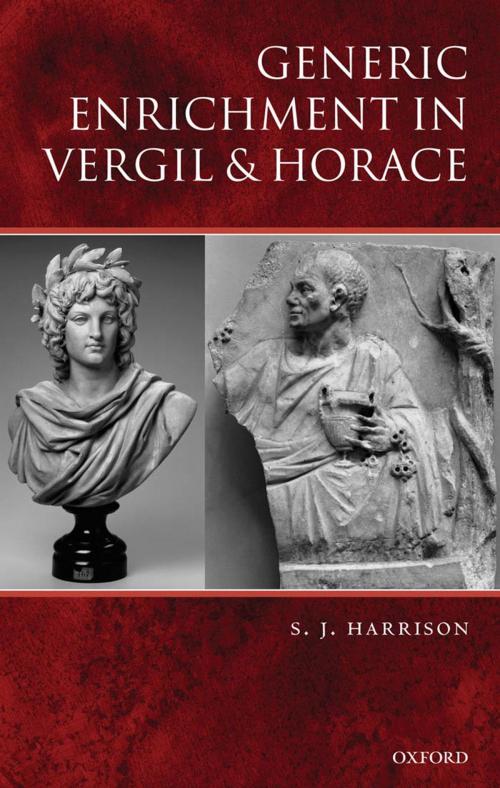Generic Enrichment in Vergil and Horace
Fiction & Literature, Literary Theory & Criticism, Ancient & Classical, Poetry History & Criticism| Author: | S. J. Harrison | ISBN: | 9780191615900 |
| Publisher: | OUP Oxford | Publication: | March 31, 2011 |
| Imprint: | OUP Oxford | Language: | English |
| Author: | S. J. Harrison |
| ISBN: | 9780191615900 |
| Publisher: | OUP Oxford |
| Publication: | March 31, 2011 |
| Imprint: | OUP Oxford |
| Language: | English |
S. J. Harrison sets out to sketch one answer to a key question in Latin literary history: why did the period c.39-19 BC in Rome produce such a rich range of complex poetical texts, above all in the work of the famous poets Vergil and Horace? Harrison argues that one central aspect of this literary flourishing was the way in which different poetic genres or kinds (pastoral, epic, tragedy, etc.) interacted with each other and that that interaction itself was a prominent literary subject. He explores this issue closely through detailed analysis of passages of the two poets' works between these dates. Harrison opens with an outline of generic theory ancient and modern as a basis for his argument, suggesting how different poetic genres and their partial presence in each other can be detected in the Latin poetry of the first century BC.
S. J. Harrison sets out to sketch one answer to a key question in Latin literary history: why did the period c.39-19 BC in Rome produce such a rich range of complex poetical texts, above all in the work of the famous poets Vergil and Horace? Harrison argues that one central aspect of this literary flourishing was the way in which different poetic genres or kinds (pastoral, epic, tragedy, etc.) interacted with each other and that that interaction itself was a prominent literary subject. He explores this issue closely through detailed analysis of passages of the two poets' works between these dates. Harrison opens with an outline of generic theory ancient and modern as a basis for his argument, suggesting how different poetic genres and their partial presence in each other can be detected in the Latin poetry of the first century BC.















